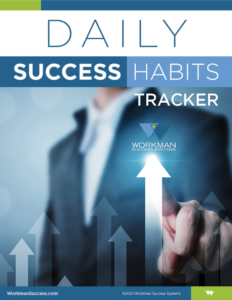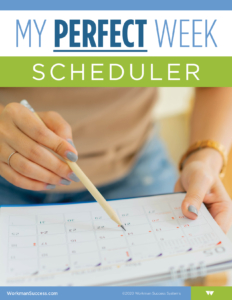It can be hard to define and enforce boundaries between work-life and home-life, especially in real estate. Developing a few simple habits to intentionally set boundaries will allow you to leave work at work, every day.
The problems associated with work stress are well-documented. Three-quarters of American workers report that stress from their jobs impacts their relationships, and stress is a risk factor for a variety of health conditions, including heart disease, obesity, and depression.
For many people, a large cause of work-related stress is their flexible or poorly defined boundaries between their work and home lives that cause one to spill over into the other. Whether you work from home full- or part-time or have a seemingly unrelenting task list that follows you wherever you go, an imbalance between work and life can happen in many ways.
In addition to the effects of excessive work stress, we also know the benefits of establishing boundaries between work- and home-life. Limiting daily and weekly work hours and having regular, predictable time off (weekends) improves productivity and reduces the frequency of major mistakes. Balanced workers also take fewer sick days and have higher retention rates.
Click here to Evaluate Your Work-Life Balance!
So the issue isn’t whether it’s good to leave work at work, but how. This can be particularly hard to navigate in real estate, where effectively serving clients often means being available evenings and weekends. That’s why we’ve compiled these six simple tips to help you keep work at work.
One key to separating work from life is to take advantage of transitional moments between work and home. If you have any kind of commute, take that time to get yourself out of a work mindset.
You might be using your travel time as an extension of your office time, perhaps making calls or finalizing plans. While this might feel productive, ultimately, it’s a good way to bring your office right to your front door. Instead, intentionally occupy your mind with something unrelated to work. You could listen to a podcast, audiobook, or music, or call a family member just to talk – anything but work!
Once you are home, consciously extend the transitional mindset by performing some kind of activity or ritual that further reinforces the switch from work mode to leisure mode. You could spend some time in the garden, change out of your work clothes into something casual, or take some measured breaths. Exercise is also a powerful way to process stress and helps your mind move on to other tasks.
As a real estate agent, your phone is one of your best tools, and it’s not uncommon for agents to use their personal cell phone for business. Agents can receive calls and messages at any point during the day, and that’s why it’s so important to ignore your phone during dedicated personal time.
Turning off your phone or silencing it is one of the best ways to keep work at work. You don’t have to fully switch it off, but you can switch off email and other notifications. Even leaving your phone in another room while engaged in another activity can help you be more “present.”

If you work with a team, be sure and communicate when you will and won’t be available, and stick to those commitments. Have similar conversations with your clients, providing a timetable for responding to their questions and concerns. Remember: there are no emergencies in real estate if you have an effective team. If you feel like you can’t “unplug” because you will lose business over urgent matters, it’s time to think about expanding your support staff.
Begin consciously focusing on being wherever you are as another way to define your boundaries. When you are at work, center all of your thought and activity toward serving your clients and filling your pipeline. When you are at home, center yourself on your personal and family needs. Being present will increase your productivity, freeing up time you would have spent on work for other areas of your life.
To help with being present, you’ll need to make a plan for each day and stick to it. Working at the whims of the market makes daily scheduling a challenge for real estate agents, but holding yourself to a daily plan will allow you to enforce boundaries and keep a pace to meet your business goals.
You can build your daily agenda inside a weekly schedule. Before you go home on Fridays, you can plan out your next week, focusing first on non-negotiables like appointments and prospecting time. Non-negotiables also mean events in your personal life, like a child’s basketball game or date night with your spouse.

There are many things you can do to separate your business from your home-life, making each more fulfilling. Experiment to find what works best for you and your individual situation. For further guidance, download the WSS My Perfect Week scheduling tool. Maximizing your productivity doesn’t mean working more, it just means using your time more effectively. The more productive you are at work, the less you’ll want to bring it home.

